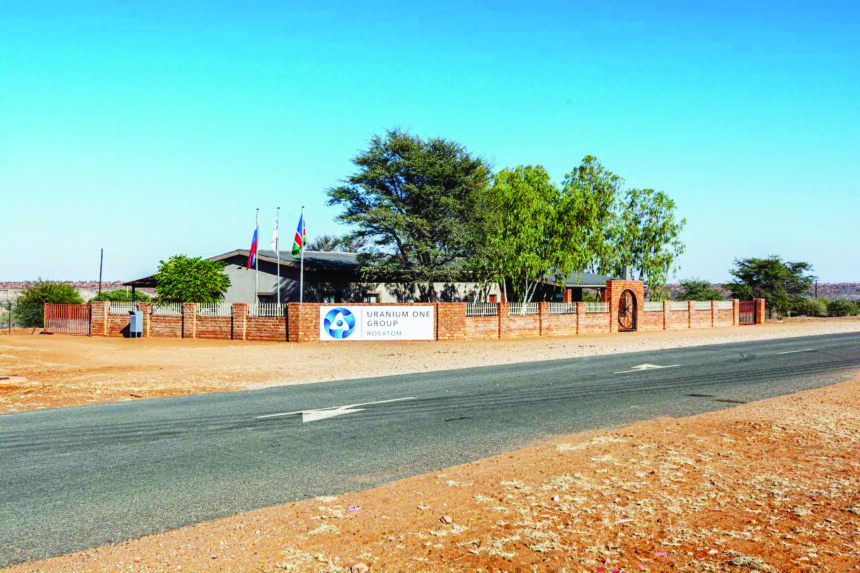Namibian authorities find themselves between a rock and hard place.
While they face a data gap dilemma to decide whether to proceed with uranium mining in the Stampriet Transboundary Aquifer System (STAS), drilling to obtain the requisite data has been put on ice.
It is a catch-22 situation, if information contained in a recent report, seen by this publication, is anything to go by.
So far, the lack of trustworthy scientific data is hampering a decision being taken by relevant ministries.
The STAS covers an enormous arid region of about 87 000 square kilometres, stretching from central Namibia into western Botswana, and into South Africa’s Northern Cape province.
Leading the charge for the Omaheke Uranium project is Headspring Investments, the Namibian subsidiary of Russian company Uranium One, which in turn is owned by the Russian State-owned nuclear energy company, Rosatom.
Headspring Investments’ exploration activities in the Omaheke have now been halted for about two years.
Much of the controversy surrounding the project is a contentious extraction method, also known as in-situ recovery (ISR) or solution mining.
ISR is an extraction process to recover minerals, such as copper and uranium, through boreholes drilled into a deposit.
According to a final joint investigation report on the project, dated 26 June 2023, Headspring Investment has been awarded eight exclusive prospecting licenses (EPLs) for base and rare metals as well as nuclear fuel minerals.
The EPLs are in the Leonardville area.
“The main focus of the company is on nuclear fuel minerals, targeting uranium mining. Headspring have been drilling on these EPLs since 2012 – and to date have drilled in excess of 500 exploration boreholes, and 36 hydrogeological/monitoring boreholes on 39 farms. The company initially obtained drilling permits from the water ministry that was revoked during the latter part of 2022 due to the company’s non-compliance with some of the drilling conditions,” reads the report that was compiled by four ministries, obtained by this reporter.
These are the ministries of agriculture, water and land reform; mines and energy; health and social services, as well as environment, forestry and tourism.
In the meantime, Cabinet established a technical committee (TC), comprising the water, mines and environment ministries as well as the Namibia Investment Promotion Development Board to deliberate on the matter, and report to a ministerial committee by April 2023.
Noncompliance
The TC therefore conducted a site visit to ascertain alleged non-compliance, and to understand the drilling methodology that could possibly lead to water contamination during the exploration stage.
“In the field, it was observed that all the exploration boreholes are sealed and well labelled. However, the labels and borehole identification numbers did not correspond to the well identification numbers issued to Headspring as per the permit conditions, but rather according to internal numbering related to depth and line profile. It was noted that the prescribed casing and grouting was not followed as per the drilling permits issued by the ministry,” the investigation found.
According to the report, the proponent’s non-compliance with permit conditions led to irreversible negative impacts on the aquifer system.
The report added that drilling was illegal due to the exceeded number of boreholes.
This meant an additional application for 250 exploration boreholes was rejected, as previous non-compliance cannot be remedied.
Recommendation
The report concluded and recommended that no mining or test mining should take place on site, and that the environmental clearance certificate (ECC) held by the company is in respect of the exclusive prospecting licenses (EPL) for the purposes of exploration.
The report further recommends that “objective and comprehensive considerations be taken into account in the event that Headspring applies for a mining licence, including this report”.
Last month, the water ministry as well as the United Nations Educational, Scientific and Cultural Organisation (UNESCO) conducted a high-level discussion on issues pertaining to the aquifer.
At this event, Unesco, as an advisory body to government, stated there is insufficient information provided about the surface processing facilities used during the proposed four-year trial to determine if this will be the case.
United Nations Educational, Scientific and Cultural Organisation (Unesco) also determined that natural attenuation has been proposed as the only remediation technique, although the effectiveness of this approach cannot be assessed at this stage due to limitations in the reporting model.
Unesco, therefore, recommends that other remediation techniques be considered.
The United Nations agency thus proposed for additional data and information to address deficiencies identified during the review.
Unesco has also called for a robust and detailed management and monitoring plan clearly linked to key risks and modelling outcomes as well as a clear discussion of model capabilities and limitations considering the available inputs and objectives.
Meanwhile, Kirill Egorov-Kirillov, director of mines at Uranium One and director of Headspring Investment, said they concur with the Unesco views.
“We also confirm that we are prepared to continue and complete exploration drilling, conduct comprehensive studies and provide the required information (data) referred to by the Unesco representatives,” he added.
The company believes decisions regarding the project should be taken based on scientific facts – and not irrational fears and unfounded rumours.
Opposition
At a recent meeting, water minister Calle Schleittwein stressed that Namibia is a dry country.
He furthermore emphasised it is essential to agree on exploration methods and mining that do not endanger the quality or quantity of groundwater resources.
Schlettwein has been firm in his resolve not to gamble with what he has termed “scarce resource” water.
He does not want to gamble with it, it seems.
“We cannot survive without water and food, but we can live without coal or uranium. Therefore, we believe it is our duty, as government and responsible citizens, to be cautious about all activities that could negatively impact our scarce, life-giving resource water,” he said.
Uranium One spokesperson Riaan van Rooyen told New Era that after the latest meeting, there has been no communication yet from the ministry on the way forward.
Caption:



